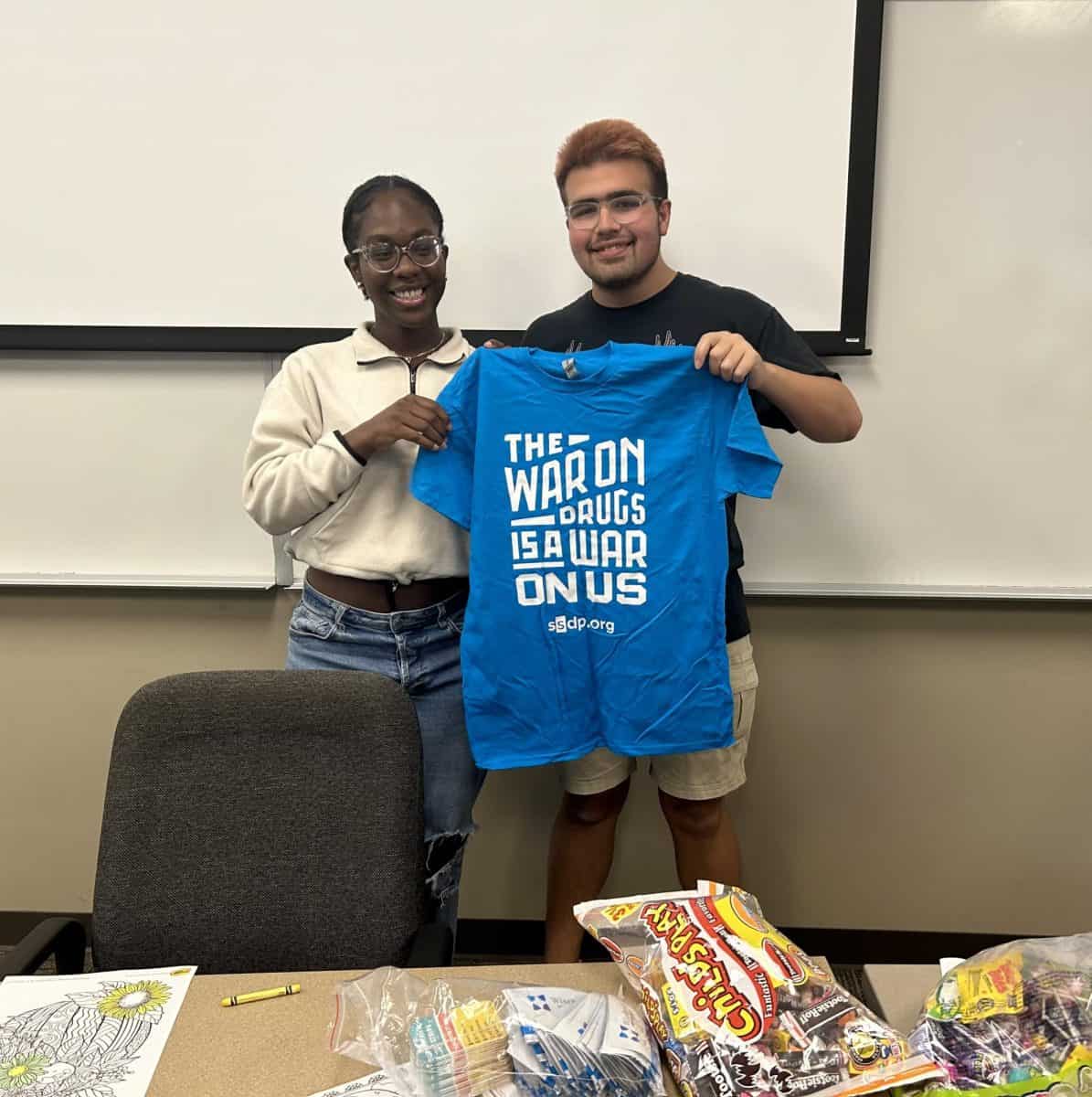Students for Sensible Drug Policy held a “Spooktacular Substance Smarts” event on Monday to raise awareness about harmful Halloween-related substance myths.
In addition to handing out candy, SSDP embraced the Halloween season by focusing the discussion on drug myths and rumors related to Halloween, such as brightly colored fentanyl that became linked to the holiday due to its candy-like appearance. Implying that these connections can sometimes be myths, SSDP encouraged students to avoid “societal fear-mongering” and stay educated on the topic.
Marlie Thomson, a senior majoring in interdisciplinary studies with an in-depth study in sociology and social justice, founded UA SSDP in 2022 aiming to promote safe drug practices in the community through prioritizing “loss prevention.”
“Loss prevention in terms of the drug policy world is basically overdose prevention. It’s the idea of teaching people how to recognize and respond to an overdose,” Thomson said. “It would include things like Naloxone, which is an opioid antagonist that is really easy to give.”
According to the 2023 annual report from the Alabama Opioid Overdose and Addiction Council, the time period between June 2022 and June 2023 displayed a 1% national increase in non-fatal opioid overdoses. During the same time period, there was a 9% increase in non-fatal opioid overdoses in the state of Alabama alone.
In addition to educating students on how to treat an overdose, SSDP promotes preventative measures before initial drug use. The club provides students with fentanyl test strips and teaches students how to test recreational drugs for more harmful substances.
“The club benefited me. Last year, I was able to use what I learned here to help a girl who was laced,” said Xzarria Peterson, a senior majoring in political science and president of SSDP. It was a really scary moment for all of us, especially because she didn’t know what was happening, but I was happy that I learned enough here to use that and get her help.”
Following the event’s slideshow covering drug myths, the SSDP board engaged with the students by drawing with them and asking for their input on where they would all like to meet next.
“I’d recommend the club to other students, really anyone who is interested in sensible drug policy,” said Sophia Kyemba, a junior majoring in computer science.
Moving forward, Peterson said she aims to grow the organization’s outreach and create more interest in the community. Aside from attending meetings, students can get involved in SSDP by joining the executive board, which is usually selected towards the end of the year.
“Founding this club has given me a lot of experience, but it has also given me a better and deeper understanding of drug use,” Thomson said. “Drug use does not discriminate. Everyone should know about it.”









